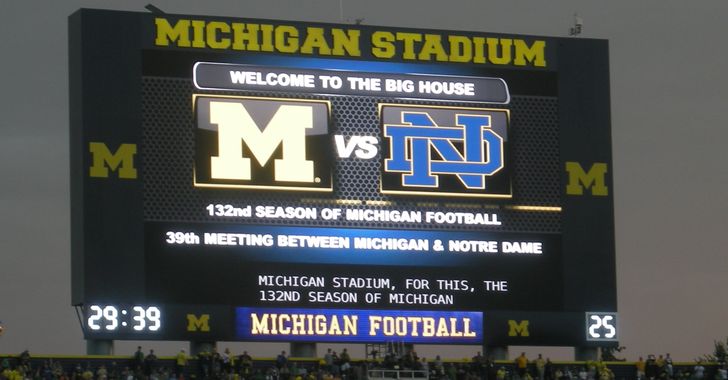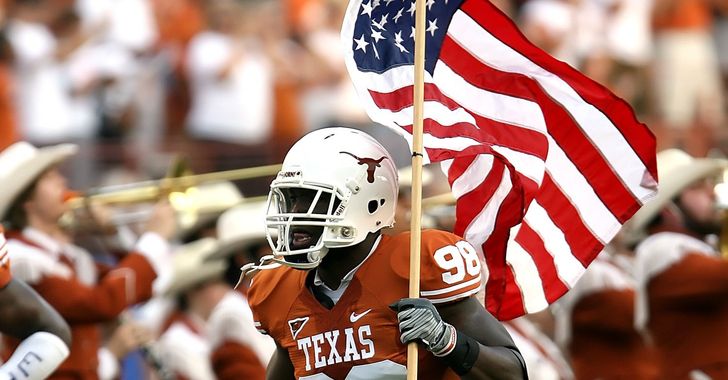On Monday, April 15, U.S. Secretary of State, Mike Pompeo, visited Texas A&M University in College Station. I was fortunate enough to attend and ask him (preselected and edited) questions in front of the audience.
Fair warning, this article may not be your typical journalistic article that reports on political figures. There are plenty of those out there that you can and should read! But for this article, let's spice things up; I want to paint a picture of my first time communicating with a globally authoritative entity, including how Pompeo presented himself and how that presentation was received by my home.
Tone-wise, the situation felt like it had a self-conscious sense of esteem to it - likely stemming from the fact that Pompeo graduated from a military academy and was currently speaking to a few hundred people at a school with similar ties to the military.
Despite the rigid stuffiness and the irrational feeling that I was going to get sniped by the Secret Service if I even looked at the Secretary wrong, I was still excited to get in there and shake things up. Bug-eyed and buzzing with the anticipation that politics gives me, I checked in with the press and media. I was ready to absorb the experience.
Here's a breakdown of all things Pompeo-town.
First impression: as Pompeo, a sizable and stoic former CIA Director, stomped out to the podium, I couldn't help but compare him to other politicians. You see, Pompeo is not known for his glamour or his magnetism. But this seemingly unpolitical quality actually worked for this particular audience.
A strong aspect of the culture at TAMU is our lauding of the useful, plain, forthright things, stripped of the glitz and straight to the point. Henceforth, I came to the conclusion that Texas A&M is the perfect place for the relatively uncharismatic Secretary of State to directly explain diplomacy. Moreover, he urged the mini-versions of him in the crowd to pursue diplomacy and "learn how to shut up" as he did.
Relating to the presence of the Corps of Cadets on our campus, Pompeo contends, "diplomacy and military strike go hand in hand." He furthers his pitch, "the State Department has a long history of hiring people with a military background. And Texas A&M, with its great military history, could provide many great public service leaders just as West Point has done through the years."
As questions from the audience permitted, he discussed foreign policy. Everywhere from "the crisis in Venezuela" to "coalitions in Turkey" to "sanctions in North Korea" was brought up. For the most part, the audience seemed to be tracking with him, listening intently (with the exception of a couple of folks in the audience who tried to interrupt his lecture in order to inquire about immigration reform and the Muslim ban). A straight-shooter, Pompeo was received well by the university with only a few personal anecdotes and jokes.
He did, however, get some laughs for popping any bubbles of political idealism when he said, "At my alum, we were taught not to lie cheat, steal, or tolerate those who do." (Fun fact: this phrase is also shared by Aggies!) He continues, "Then I was the CIA Director. We lied, we cheated, we stole. We had entire training courses!"
I don't mean to downplay Secretary Pompeo's charm. He made eye contact with me and every other interviewer, he greeted his listeners well, he skillfully subverted complex topics, and he spoke eloquently. But if today's political commentators argue that modern public servants prioritize style at the expense of substance - he would likely stand as the model antithesis to that statement, valuing substance over style in all matters.
As his time winded down, Pompeo stated that the reason why he does what he does, a laborer in the public sector, is to help the people of the United States, culturally and economically. The State Department currently justifies its existence with its diplomatic mission to aid developing countries in their journeys to becoming stable and democratic players in both the global village and the world market.
His parting words to us were, "I know that you all have a tremendous sense of duty, a tremendous sense of service. I hope that today that you can see that America's State Department is committed to living up to those standards."









 Photo by
Photo by 









































